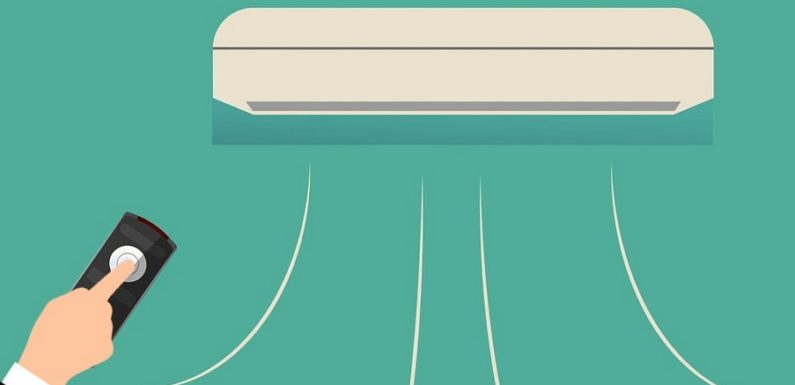
Along with heating, cooling is one of the largest and most expensive uses of energy in the home. Make sure to run heat-generating devices, such as washers, dryers, and ovens, at night or in the morning to reduce stress on your air conditioner. If you install ceiling fans, set your air conditioner at a lower setting, as moving air remains cooler than still air. Planting shade trees around your home will allow your AC to work less—plus, it will beautify your outdoor areas, adding value to your home. Trees will also absorb at least some of the carbon dioxide that your home produces.
Table of Contents
Air Conditioning
During the summer season, air conditioning units use half of a home’s energy. Fortunately, air conditioning technology improves almost yearly, so the newer your unit, the more likely that it will save you money. When upgrading to a new unit, check the ENERGY STAR rating, which will give you the estimated cost for running the machine throughout the summer.
Efficient Air-Conditioner Size
The number one reason for inefficiency in home air conditioning systems—whether window units or whole-house systems—is incorrect sizing. If you find yourself needing to run the air conditioner constantly, the unit is probably too small for the space you’re cooling and is probably costing you more than it needs to. When buying a new unit, make sure that it has enough BTUs (British thermal units) for the room(s) that you need to cool. Ask your contractor or local home improvement store for recommendations about the correct number of BTUs for your particular home—guidelines about BTUs per square foot vary by climate zone.
Ductwork (HVAC System)
Another common reason for home air conditioning inefficiency is incorrect or inefficient ductwork, which is part of the home’s HVAC (heating, ventilation, and air conditioning) system. Cool air falls, whereas warm air rises, so to keep the second or third floor of a house comfortable during hot summer days, you need to have adequately sized ducts that deliver air to upper floors, as well as a fan system that consistently moves that heavier cold air upward.
Keep in mind that existing heating ductwork may not be sufficient for your cooling system. Because hot air rises, it’s easier to keep a house warm than it is to keep it cool, so additional ducts for air conditioning may be needed for maximum efficiency and comfort.
Attic Fan and Exhaust
In their quest for a cool house during the summer, many people forget that it’s just as important to get warm air out of the house as it is to keep cool air in. When heat rises, it settles in the attic and ceiling spaces, which can keep your house from cooling off at night. Installing an attic fan that will let out hot air during the day and cool air at night will save energy, since your air conditioner won’t have to work so hard.

